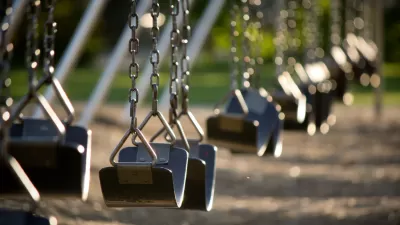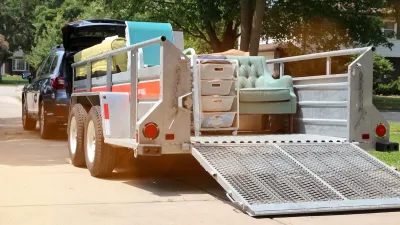The economic uncertainty of the pandemic has added to already declining birth rates in a troubling sign for the future of the American economy.

Writing in the New York Times, Melissa S. Kearney and Phillip B. Levine assess their earlier prediction that the COVID-19 pandemic will lead to a drastic decline in U.S. births which, coupled with an already declining birth rate, will cause "consequential changes to our economy and society in the years to come."
The authors predicted a dip of roughly 8% last year, using an analysis "based largely on the fact that economic factors affect people’s decisions about whether and when to have a baby" as well as demographic history from the 1918 flu pandemic. Although birth data affected by the COVID-19 pandemic won't be available for several more months, recent surveys indicate that "couples were intentionally putting their pregnancy plans on hold and having sex less often." Provisional data for January 2021 births (the first that would have been affected by lockdown measures) from Florida and California show a 7.2% and 10.5% decline, respectively.
It is impossible to anticipate all the possible social and psychological effects of this baby bust, but according to Kearney and Levine, "the real societal challenge of a Covid baby bust will be a smaller work force, which portends lower economic productivity and fewer workers to contribute to the tax base." With employment rates and productivity falling alongside birth rates, the authors argue, "turning things around will require a significant investment of public resources to improve our country’s economic competitiveness."
FULL STORY: We Expect 300,000 Fewer Births Than Usual This Year

Alabama: Trump Terminates Settlements for Black Communities Harmed By Raw Sewage
Trump deemed the landmark civil rights agreement “illegal DEI and environmental justice policy.”

Study: Maui’s Plan to Convert Vacation Rentals to Long-Term Housing Could Cause Nearly $1 Billion Economic Loss
The plan would reduce visitor accommodation by 25% resulting in 1,900 jobs lost.

Planetizen Federal Action Tracker
A weekly monitor of how Trump’s orders and actions are impacting planners and planning in America.

Wind Energy on the Rise Despite Federal Policy Reversal
The Trump administration is revoking federal support for renewable energy, but demand for new projects continues unabated.

Passengers Flock to Caltrain After Electrification
The new electric trains are running faster and more reliably, leading to strong ridership growth on the Bay Area rail system.

Texas Churches Rally Behind ‘Yes in God’s Back Yard’ Legislation
Religious leaders want the state to reduce zoning regulations to streamline leasing church-owned land to housing developers.
Urban Design for Planners 1: Software Tools
This six-course series explores essential urban design concepts using open source software and equips planners with the tools they need to participate fully in the urban design process.
Planning for Universal Design
Learn the tools for implementing Universal Design in planning regulations.
Caltrans
Smith Gee Studio
Institute for Housing and Urban Development Studies (IHS)
City of Grandview
Harvard GSD Executive Education
Toledo-Lucas County Plan Commissions
Salt Lake City
NYU Wagner Graduate School of Public Service





























